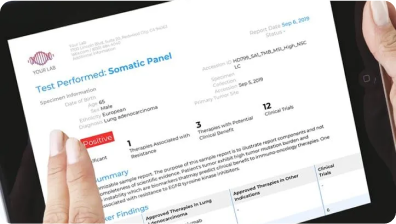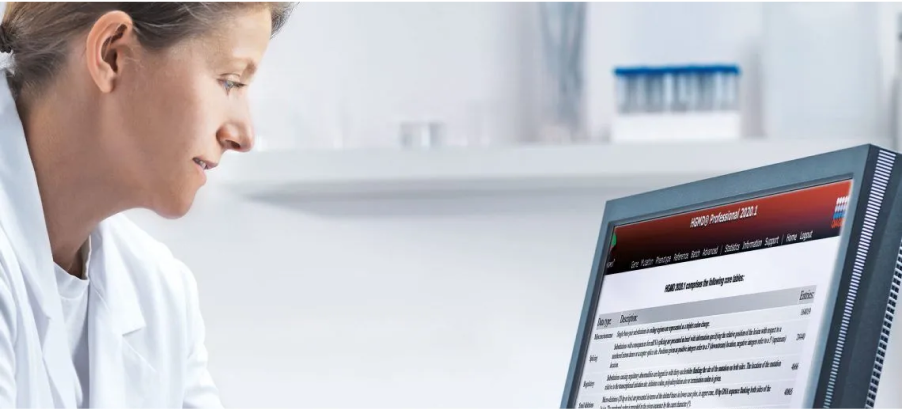

















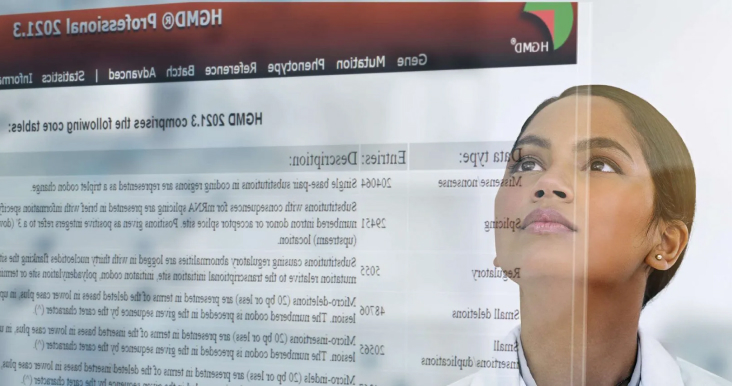
When a family has a child with a rare undiagnosed condition or a couple is planning their next chapter, they want assurance that their doctors are considering every peer-reviewed paper and all available evidence in their quest for an answer.
HGMD Professional remains the largest, manually curated resource for finding disease-causing mutations. Founded and maintained by the Institute of Medical Genetics at Cardiff University, the database attempts to collate all known (published) gene lesions responsible for human inherited disease, giving you the best possible chance of reaching a diagnosis.

HGMD is powered by a team of expert curators at Cardiff University. Data are collected weekly by a combination of manual and computerized search procedures. In excess of 250 journals are scanned for articles describing germline mutations causing human genetic disease. The required data are extracted from the original articles and augmented with the necessary supporting data.
The number of disease-associated germline mutations published per year has more than doubled in the past decade (Figure 1). As rare and novel genetic mutations continue to be uncovered, having access to the latest scientific evidence is critical for timely interpretations of next-generation sequencing (NGS) data.
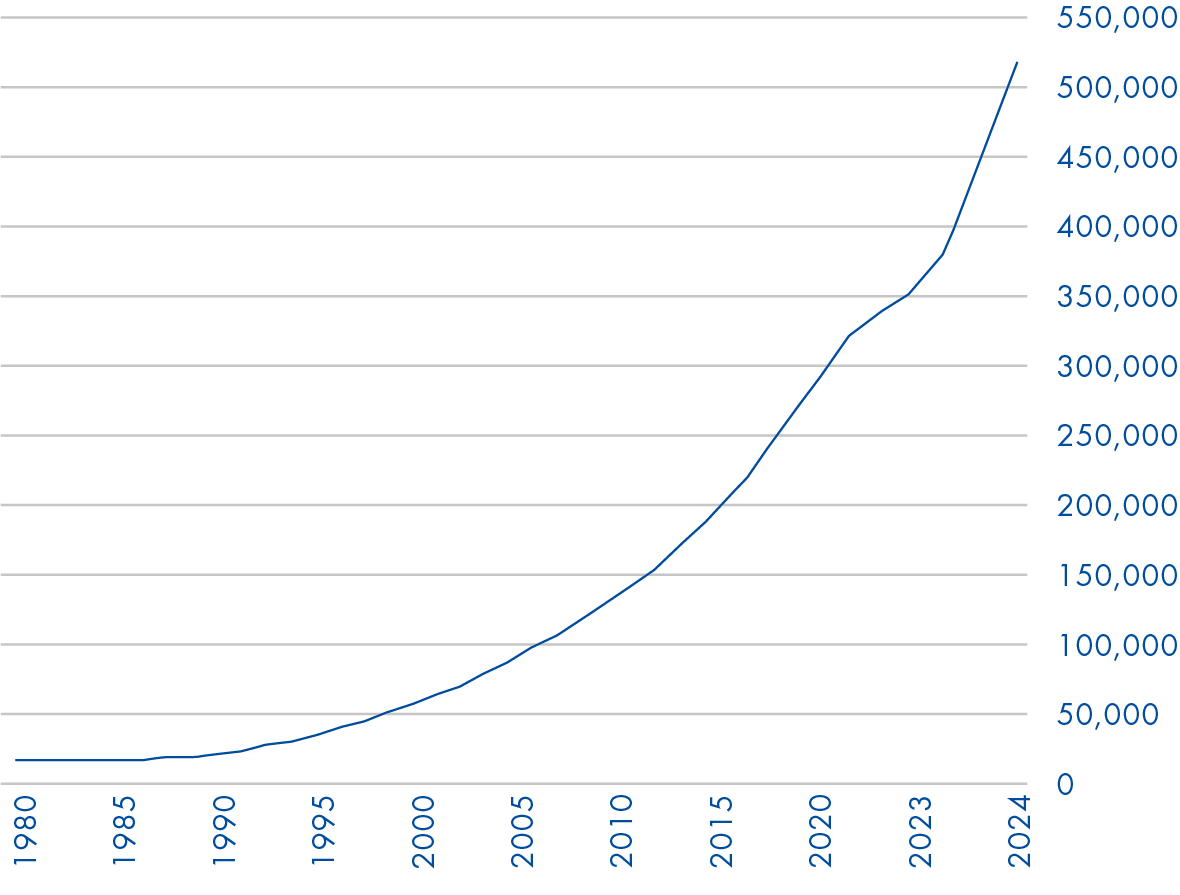
Figure 1. Mutation entries in HGMD Professional. The number of inherited disease-associated germline mutations published per year has more than tripled (3x) since 2010.
If you currently use the public version of HGMD, there is a lot of content that you are missing. Not only is the public version of the database three years behind in terms of published mutation entries, it lacks a multitude of search features critical to elucidating clinically significant associations.
For example, only in HGMD Professional can you search for a mutation by chromosome location, gene ontology or phenotype. But that’s not all. See the full comparison between the public and professional versions of HGMD below.
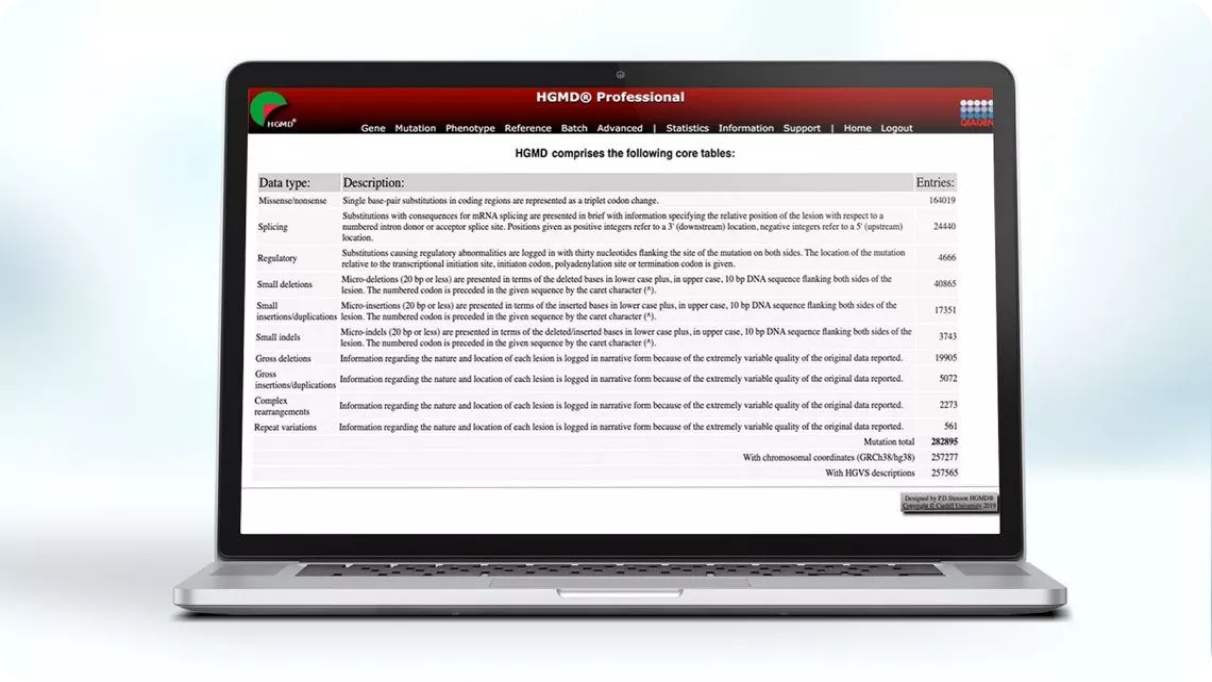
For clinical labs looking to expand into hereditary disease testing, QIAGEN Clinical Insight (QCI) Interpret reproducibly translates highly complex NGS data into standardized reports using current clinical evidence from the QIAGEN Knowledge Base, which consists of over 40 public and proprietary databases, including HGMD Professional.
QCI Interpret for Hereditary Diseases delivers manually curated evidence directly to your pipeline. You receive links to all articles, auto-computed ACMG/AMP classifications, and access to over 1 million unpublished variant-phenotype relationships from the QIAGEN Knowledge Base.
QCI Hereditary Disease applications:
Hereditary cancer
Expanded Carrier Screening
Rare and undiagnosed diseases
Whole exome sequencing (WES)
Whole genome sequencing (WGS)
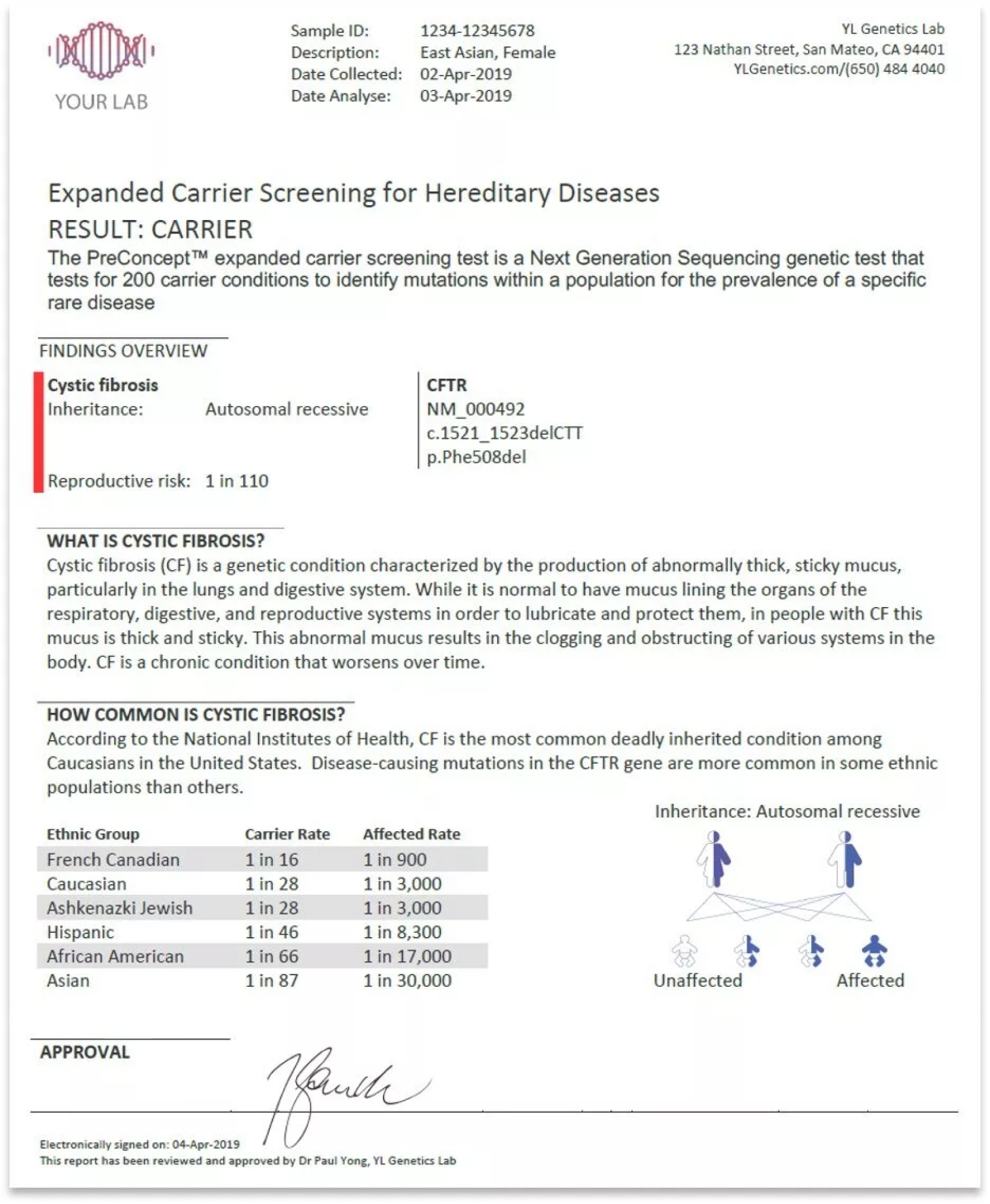
Download this brochure to learn more about HGMD Professional, with detailed information on use-cases, applications, and customer testimonials.
Find out how scientists at Rockefeller University are using HGMD to rapidly sort through exome data and find disease-causing mutations.

Through step-by-step tutorials, we show you how to use a multitude of search functions only available in HGMD Professional.
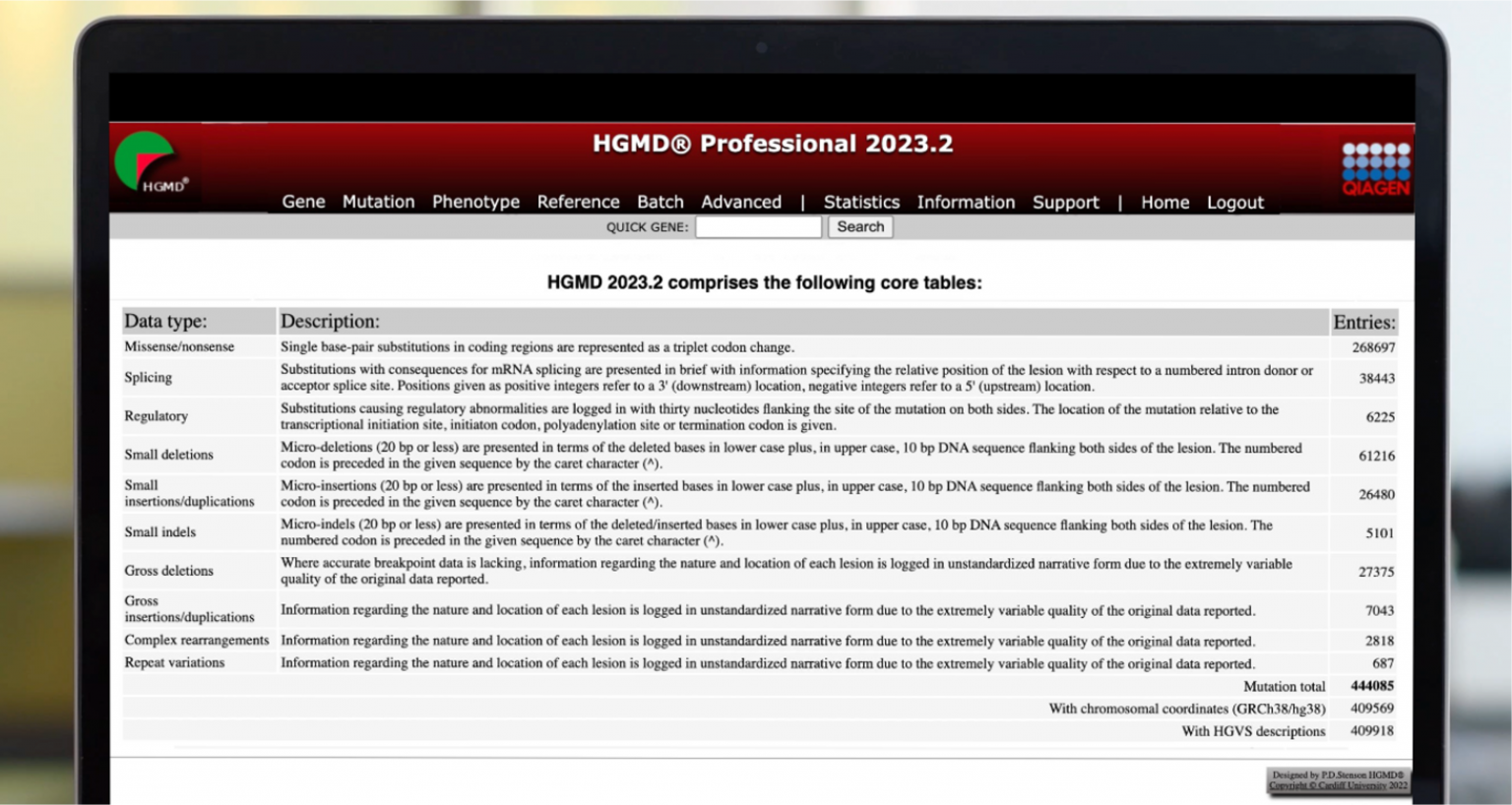


Elisha Cooke-Moore, a wife and working mother of five in southern Oregon, underwent a series of unnecessary surgeries, including a double mastectomy and hysterectomy. These surgeries were based on misinterpreted genetic test results, which led her to believe that she had pathogenic MLH1 and BRCA1 mutations.
These false positives and the corresponding inappropriate course of treatment pursued caused her to experience early menopause, multiple follow-up surgeries, and post-traumatic stress disorder.
The outcome could have been different if Elisha’s genetic test results had been correctly interpreted.
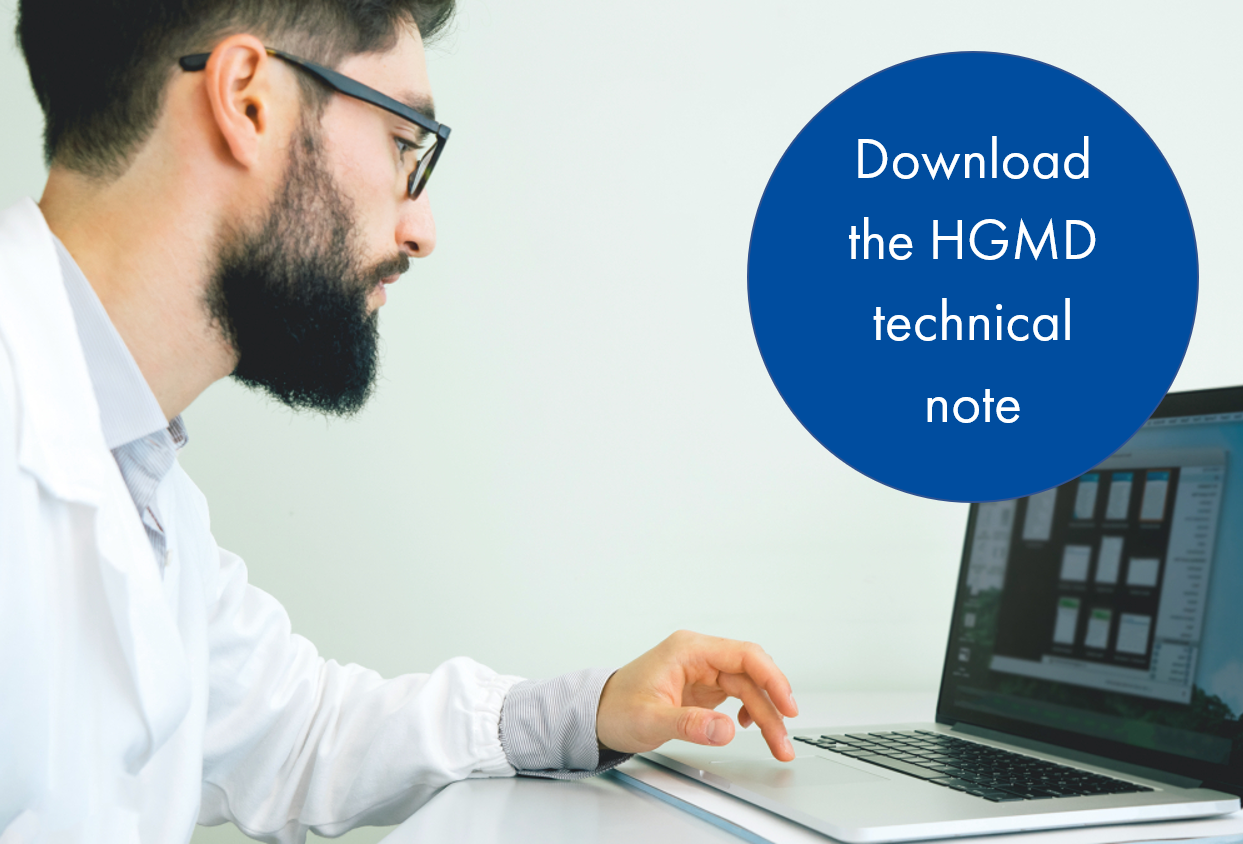
Discover just how easy it is to incorporate HGMD into your existing variant annotation pipeline.
Numerous free or open source variant annotation tools are available today to extract, annotate and analyze the genomes and their identified variants coming from NGS methods.
However, the value derived from variant annotation is directly related to the information resource selected for annotation. In this technical note, we provide a guide for using HGMD data with three tools: ANNOVAR, snpEff, and VariantAnnotation (Bioconductor).

Together with deep learning (DL) and machine learning (ML), AI is currently a buzzword across almost all scientific disciplines and has the potential to revolutionize diagnostic approaches in inherited diseases. But when it comes to variant curation, is AI capable of replacing human expertise? In a new study, Stanford University compares data quality from their Automatic Variant evidence Database (AVADA) to the Human Gene Mutation Database (HGMD).
